Chapter 12 Ancient Rome | Oxford Humanities 7 Victorian Curriculum
1/38
There's no tags or description
Looks like no tags are added yet.
Name | Mastery | Learn | Test | Matching | Spaced | Call with Kai |
|---|
No analytics yet
Send a link to your students to track their progress
39 Terms
fortification
a tower or wall built to defend a place against attack
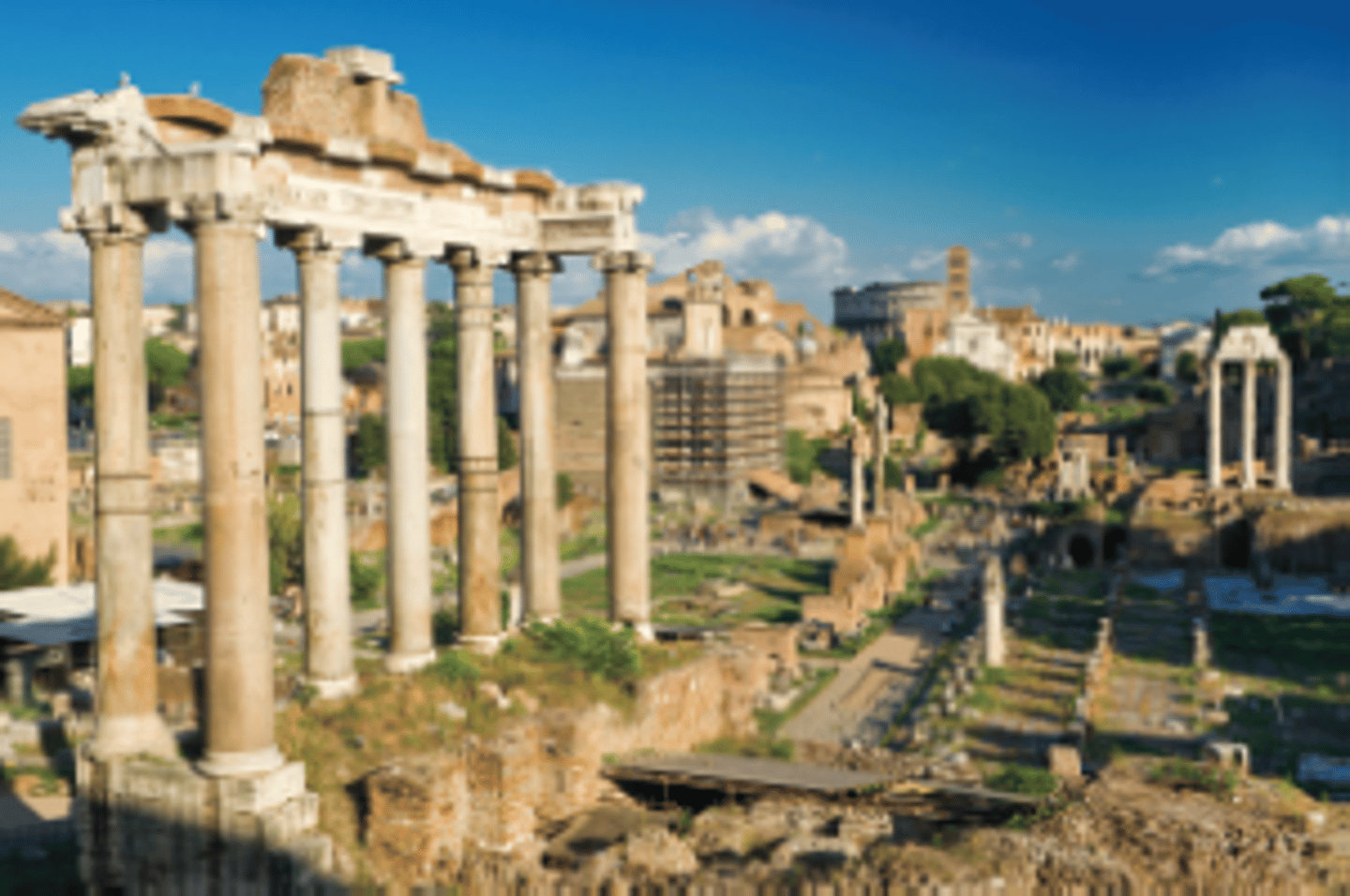
sarcophagus
the outer case (usually stone) of the nest of coffins containing the dead body of a person of importance
alluvial
made of sand and earth that is left by rivers or floods
latrines
the early name for toilets
aqueducts
human-made channels for transporting water
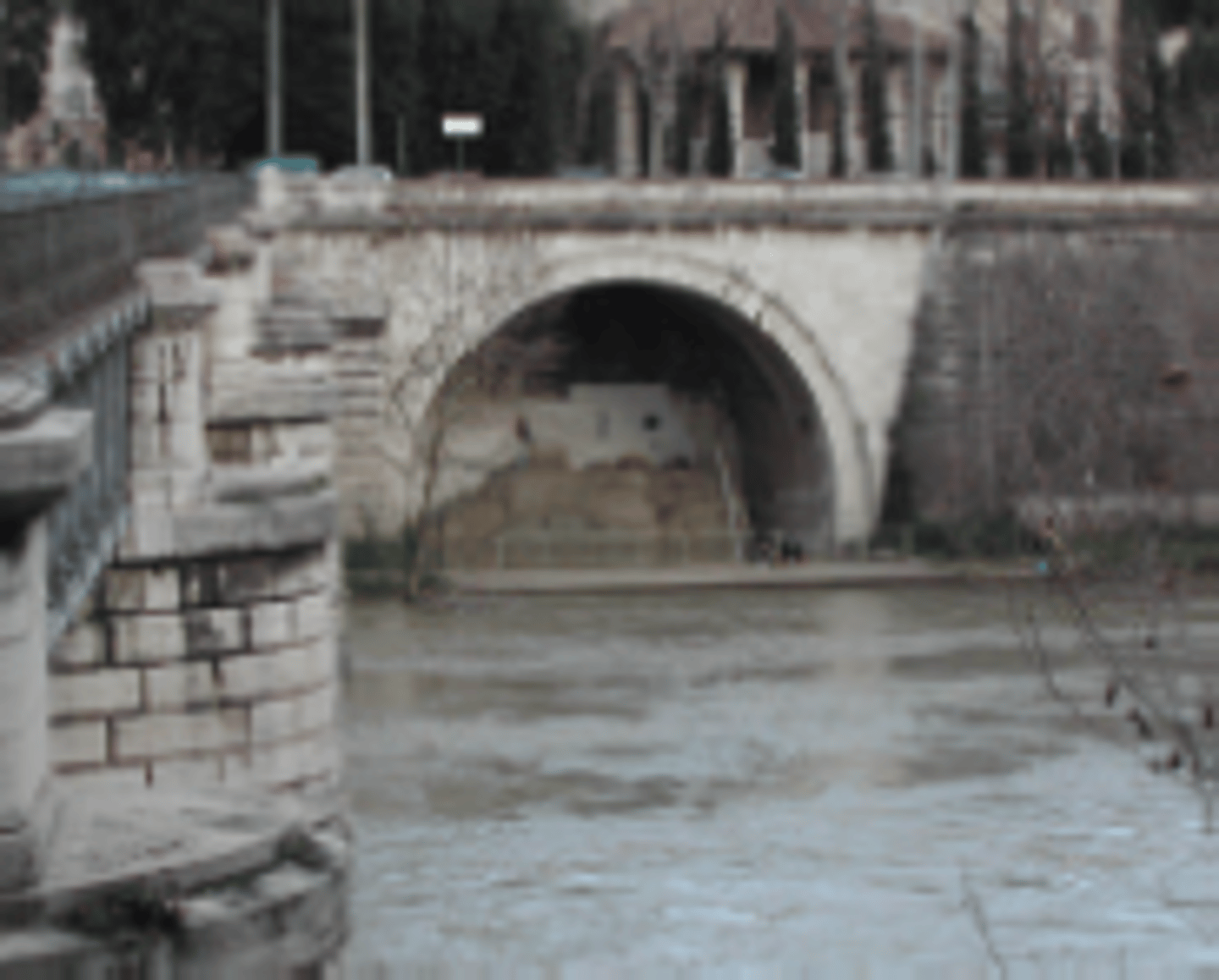
hydraulic engineering
the planning and management of the flow, pressure and storage of water
garrison
a group of soldiers living in a town to defend it
aristocrats
people who (through wealth or birth) belong to the upper class of a social group
patricians
educated and usually influential male members of one of ancient Rome's aristocratic families; usually wealthy landowners
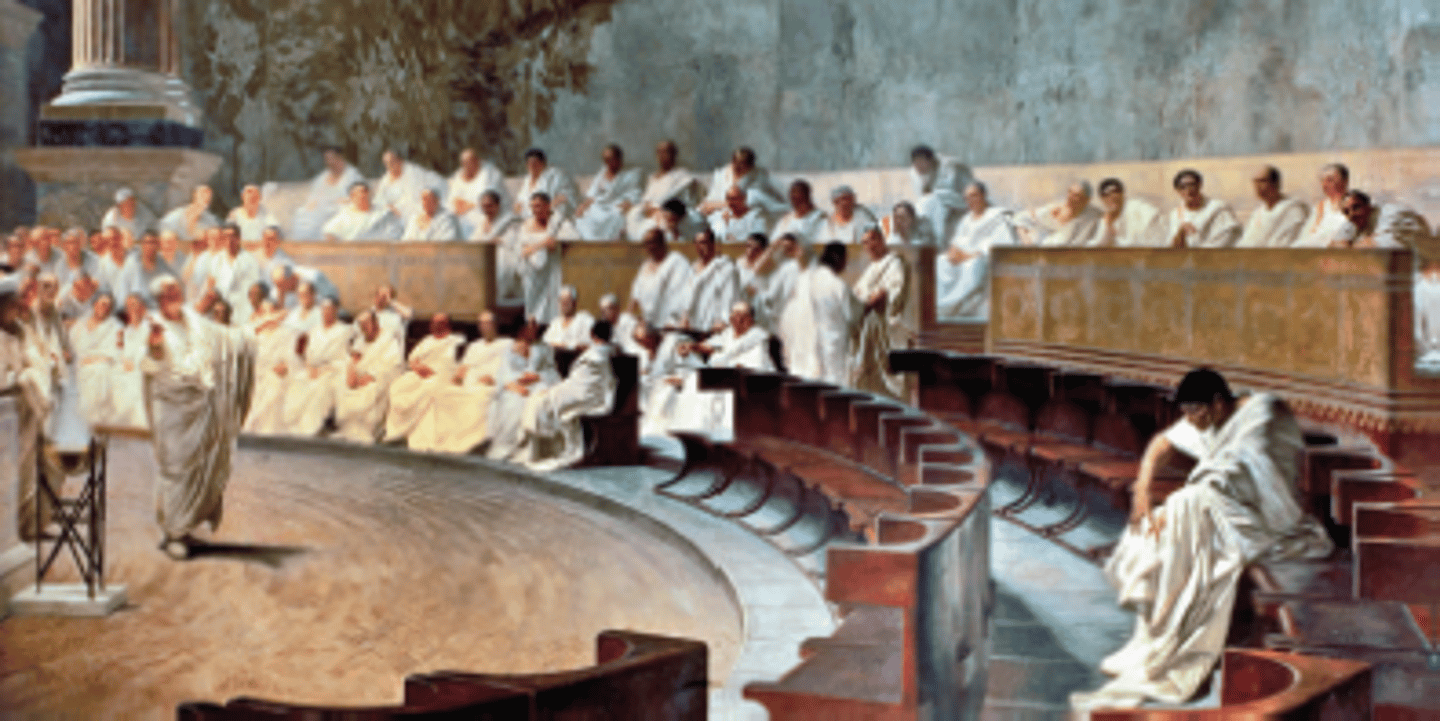
plebeians
a term used to describe the many poor and uneducated people in ancient Rome
equites
high ranking military officials, e.g. knights and cavalry of Roman army
peregrinus
free men from outside Rome; had some rights, but not those of citizens, e.g. could conduct business and marry citizens
liberti
were slaves who were set free or who paid for freedom
caste system
a strict hierarchy (class system) used to organise society
republic
a system of government in which the people and their elected representatives (such as a president, politicians or senators) have power
democracy
a political system in which people hold the power, either directly or through representative democracy
Roman Senate
a group of officials (senators) with ruling power in ancient Rome
paterfamilias
a Latin word meaning 'father of the family'; male head of a household in ancient Rome
quaestor
the lowest ranking elected official; usually looked after public spending and saving
praetor
an official who worked under the consuls; one commanded the army while the other was a magistrate in the justice system
deities
gods or goddesses
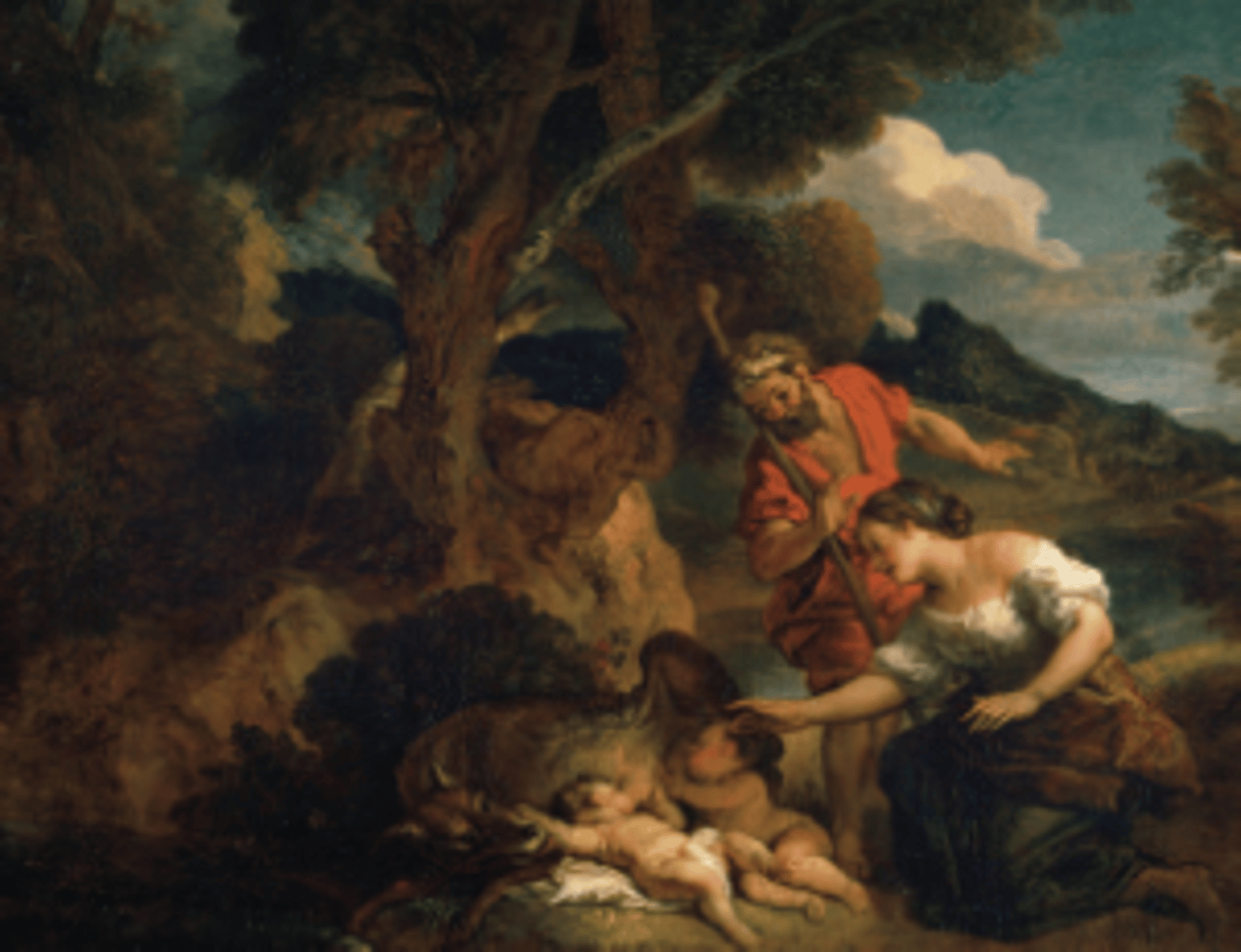
hearth
the Latin term for 'focus'; the place in the home used for cooking food, heating water and as a gathering place for family
values
qualities of character that a society or community regards highly
amphitheatres
"ancient versions of today's football stadiums, where raised seating rose up around a flat central
area where events or performances were held"
Colosseum
a large amphitheatre built and used during the Roman Empire to stage gladiator fights and other forms of public entertainment
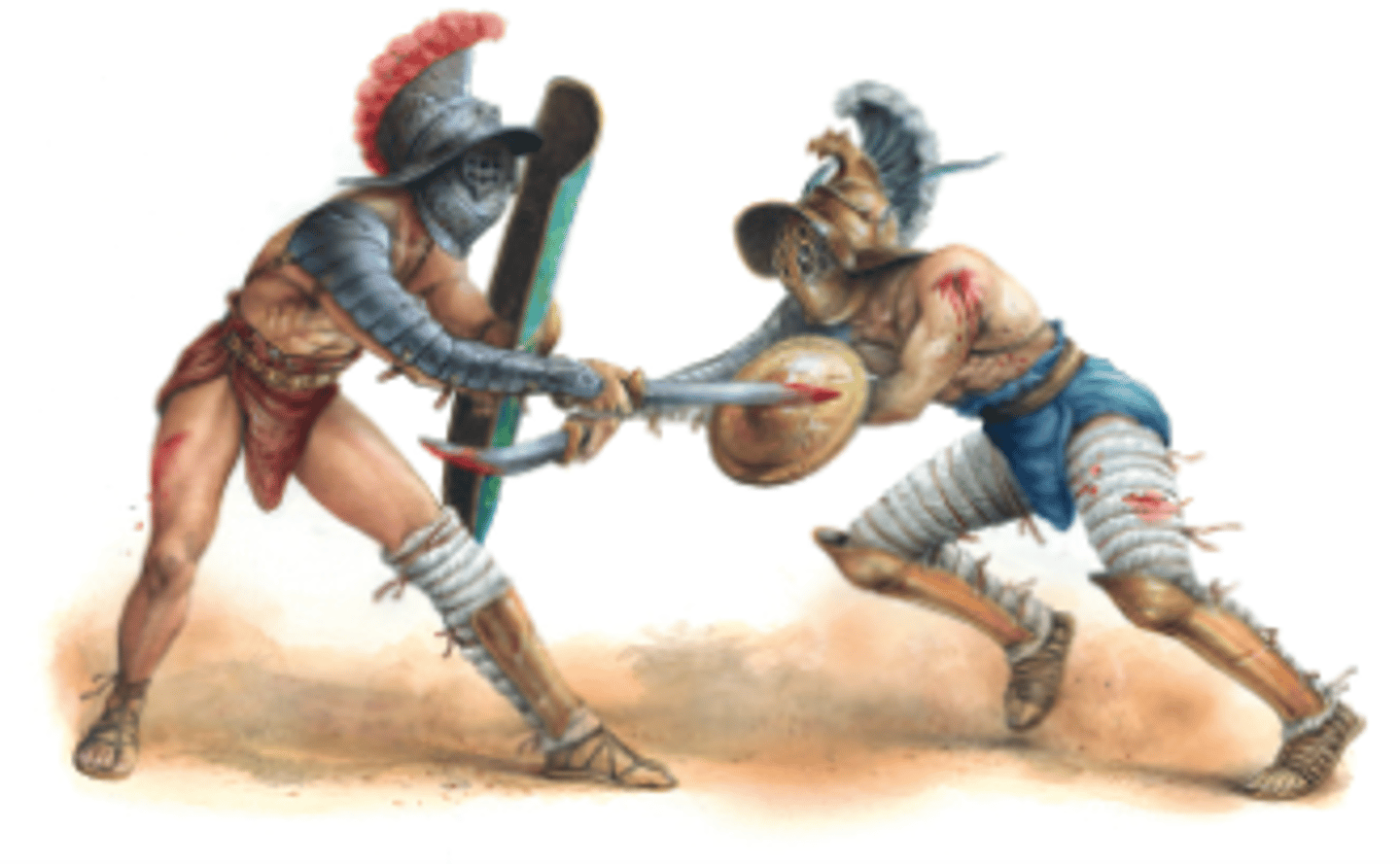
revolts
protests against authority, especially that of a government, often involving violence
mythology
a series of beliefs that the ancient civilisations used to explain life and the natural world
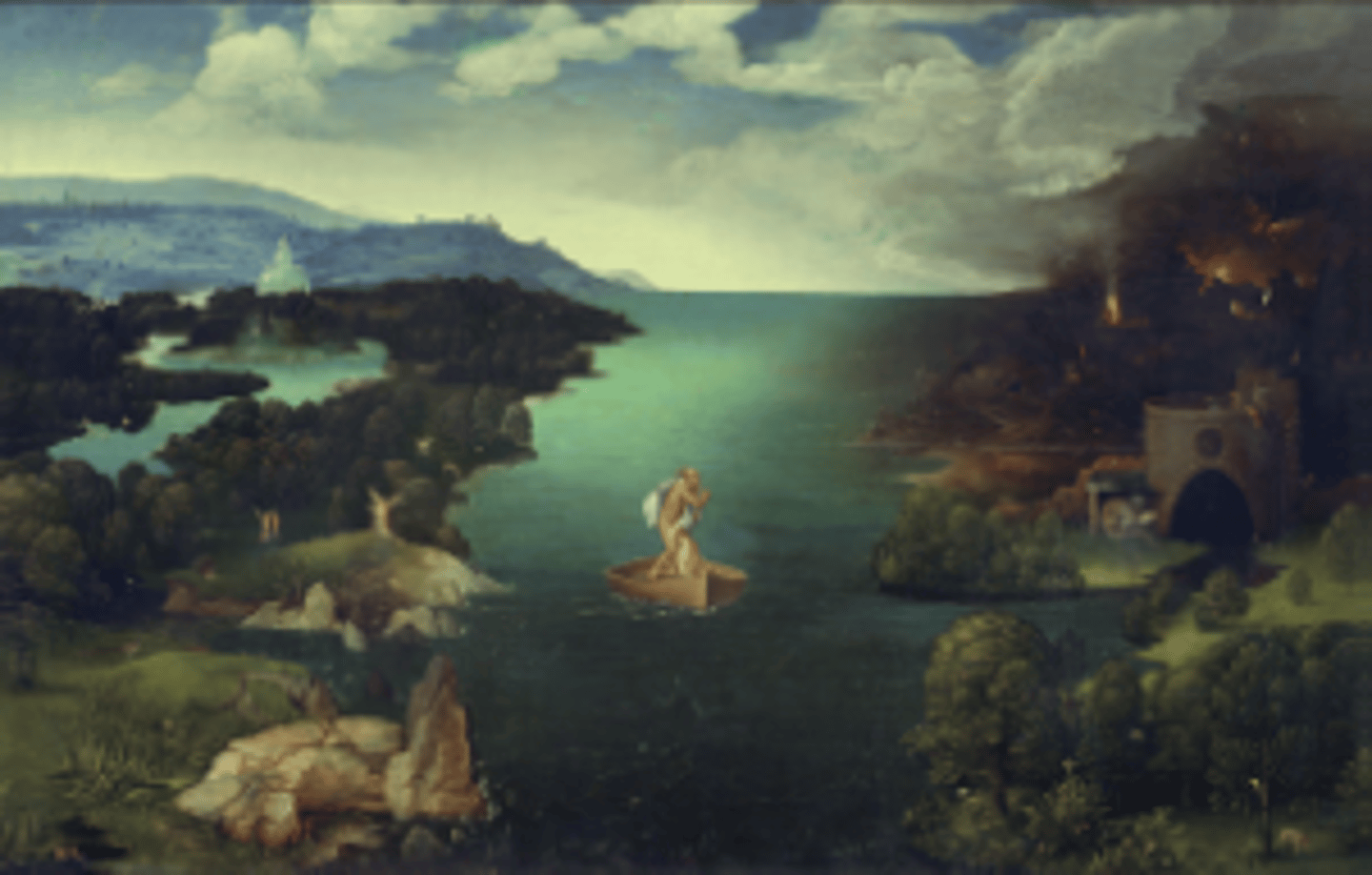
Hades
the ancient Greek god of the Underworld; also the name of the Underworld itself - the place that the souls of people went when they died
legions
military units in the army of ancient Rome made up of 60 centuries (i.e. around 6000 soldiers)
battering ram
a structure on wheels that contained a long, suspended log encased in iron in order to breach the enemy gate
siege tower
a multistorey tower constructed on wheels to move towards city walls
catapult
a larger engine that hurled stones from a long arm when it was suddenly released from tension
scorpio
a small catapult that was placed on higher ground and could fire with power and precision up to 100 metres
onager
a large slingshot which would fire projectiles long distances; it was used to break down walls or forts
testudo
a defensive manoeuvre that required soldiers to align their shields to create a boxed wall and protect them from enemy attack
export
the selling and transporting of goods to another country
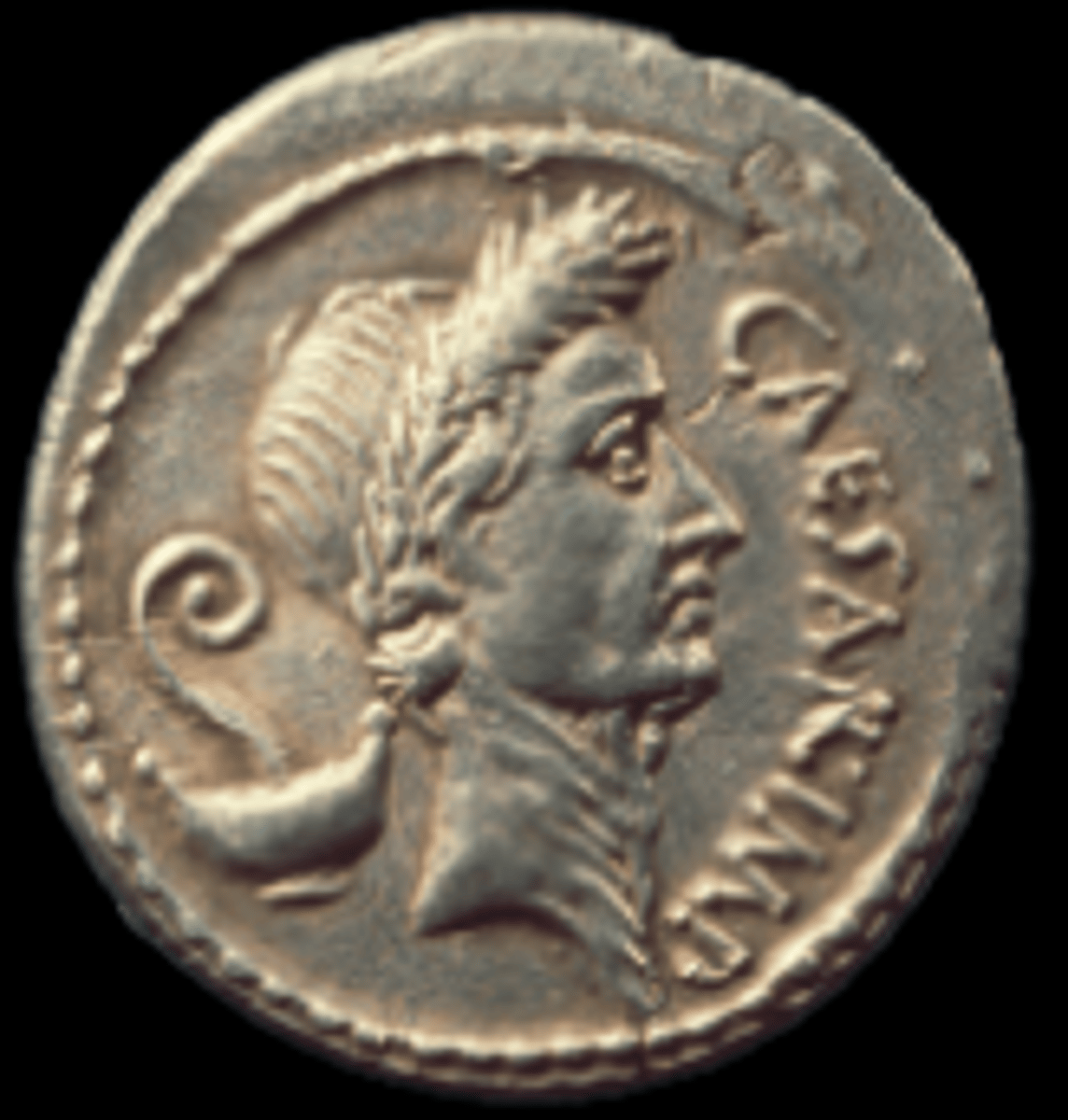
importing
bringing in a product or service to one country from another
Silk Road
a trade route stretching west from China to the Mediterranean Sea; the main route by which silk was introduced to the West